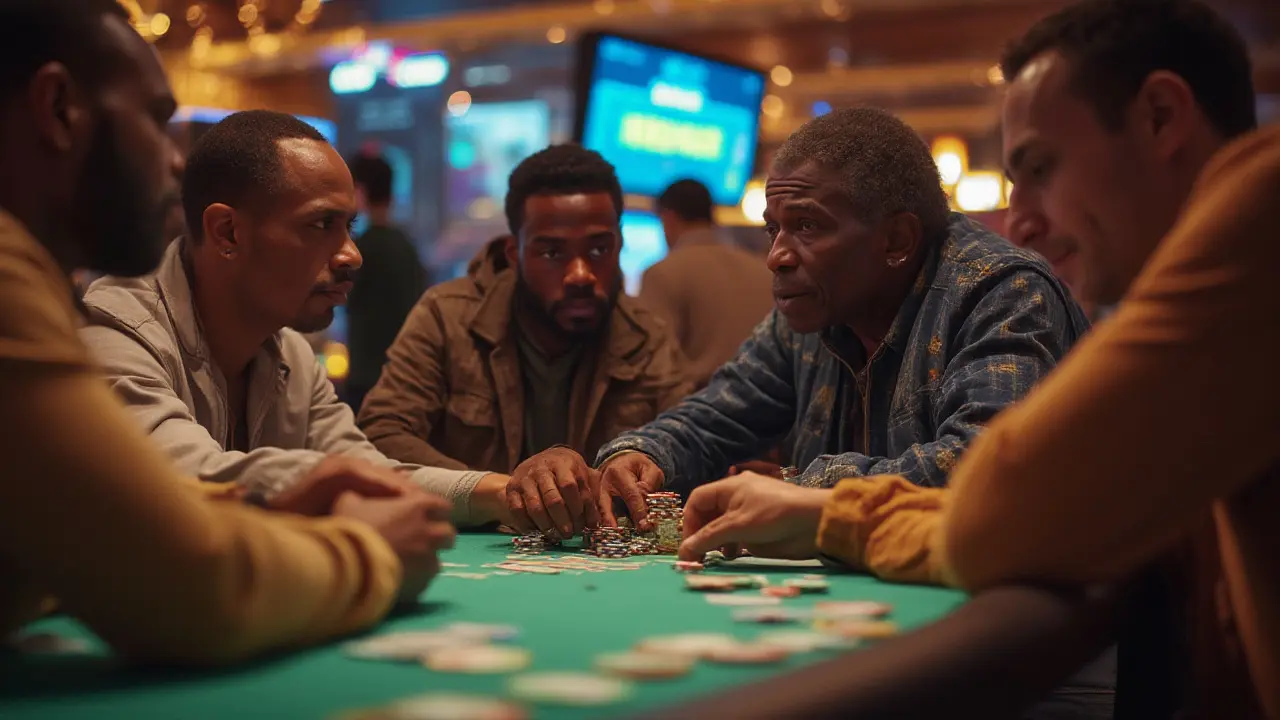Imagine a gambling system that never loses—a secret code that cracks every casino game, a bet you could place with zero risk of loss. That would be the holy grail for anyone who’s ever felt the thrill of placing a wager. Stories swirl about surefire systems: some passed down at smoky poker tables, others peddled in flashy online ads, each promising guaranteed wins. But can you really game the system? Let’s pull back the curtain on the most popular gambling strategies, the odds behind the action, and what the math says about truly beating the house.
Why "Foolproof" Gambling Systems Don’t Exist
The idea of a gambling system that never loses is as old as the games themselves. Look at the Martingale system, a classic in roulette: you double your bet after every loss, and the first win supposedly covers all past losses plus a profit equal to your original stake. The logic seems perfect, right? But here’s the kicker—casinos have table limits, not to mention you’d need a bottomless wallet. Even if you could bet infinitely, a losing streak chews through your cash fast. There’s a famous example from 2012: a gambler in Las Vegas tried Martingale on roulette and hit the table max in under 12 spins, wiping out thousands before a single win appeared. The dream fell apart instantly.
Let’s talk card counting in blackjack. Hollywood’s glamorized it in movies like "21," but the reality’s grittier. Card counters need razor-sharp focus, teamwork, and the ability to track every card dealt for hours. Casinos counter with multiple decks, automatic shufflers, and, if you’re too good, they’ll just ask you to leave. Forget about quietly scooping millions. A study from the University of Nevada found that consistent card counting might flip the odds just slightly: from a house edge of 0.5%, a skilled counter might get a 1% advantage. It’s hardly a license to print money, especially with surveillance everywhere.
Take the Labouchere system next—used mainly by roulette and baccarat fans. Here, losses tempt you to expand your betting line, all in the hope you’ll win and cancel out earlier bets. Again, the theory stumbles over table limits and finite bankrolls. People forget that even a series of coin flips can land tails 10 times in a row, which is exactly where systems like Labouchere crash hard. Look at the data from the UK Gambling Commission: they found that most players who use progressive systems leave the casino with empty pockets faster than those who just make flat bets. In other words, the math always catches up.
This isn’t just about casino games. Sports betting is built on odds explicitly set in the house’s favor. Even strategies like the "surebet" or "arbitrage," where you bet on all outcomes with different bookmakers for guaranteed profit, are rare. The internet moves faster than you do, and odds adjust in seconds. Bookmakers limit or close accounts of anyone who gets too sharp. The global sports betting market is fierce: a 2024 report from H2 Gambling Capital showed that bookies’ average take was 7% on total bets placed. That’s their safety net, and it’s tough to beat.
So if every "never lose" system fails eventually, why do they hang around? Simple—people crave certainty. Winning feels amazing, and the belief in hidden hacks is a hope as old as luck itself. But all the data points one way: there’s no system that works forever, for everyone, in every game. The house edge is stubborn and relentless, just like gravity. The casinos didn’t build the Bellagio out of winners.

The Science Behind Casino Odds and Why the House Wins
Casino games look like random fun, but the odds are engineered with razor-precision. Every game has a built-in house edge that gives the casino a percentage of every dollar wagered, no matter what system you use. Let’s explore a few classics.
Roulette’s simplicity draws in hopefuls, but every spin is stacked. On an American roulette wheel, there are 38 slots—18 red, 18 black, two greens (zero and double zero). Place a bet on red or black, thinking it’s 50-50? It’s actually 47.37%. The missing percentage is the house edge, which amounts to about 5.26%. If you bet $100 on red for 1,000 spins, you’d expect to lose about $52. That’s math at work, nothing to do with luck.
Slot machines are even sharper. Each pull is designed with a "return to player" (RTP) rate, usually between 75% and 98%, depending on the machine. A Nevada Gaming Control Board report this year showed average RTP for slots in Vegas at 92%. The rest? Pure profit for the casino. No matter your strategy, or if you play at midnight or noon, the outcome is random and the edge sits firmly with the house. No system overcomes that.
Poker is different. Here, you’re not playing the house but other players. The casino (or online platform) takes a small rake—a percentage of each pot. Skill, psychology, and patience matter. But even here, systems promising endless success get ground down by variance—the random ups and downs that even the best players face. Daniel Negreanu, the poker pro, says he’s gone weeks in the red before variance swung back. If seasoned experts can’t win every week, no formula will keep novices in profit without risk.
Modern casinos also employ advanced analytics. If a game starts losing money, the settings get tweaked. Online slots, for example, adjust volatility or add new features so wins feel "close," keeping players hooked but still behind overall. And those streaks you’re sure must mean a win is near? They’re just patterns in the randomness. Gamblers fall into the "gambler’s fallacy," expecting luck to balance out—like betting big because black hasn’t shown up in 10 spins. Yet the odds reset every spin, never caring what happened before.
Let’s peek at betting on sports for a second. Algorithms crunch player stats, weather patterns, and even crowd behavior to set odds. But the profit margin remains. Bookmakers tweak payout odds so no matter how bets are split, a profit emerges. Take a look at a real example from the final of the 2024 Champions League: bookies adjusted odds up to kickoff as money piled in, but the payout ratios always kept their margin safe. Successful punters know picking winners isn't enough—you have to beat relentless math stacked against you. That’s why professional bettors focus less on "systems" and more on detailed research, bankroll management, and value betting.
So what does this mean for you, sitting with cash in hand, reading up on the next magic strategy? The science says: systems might limit short-term losses or manage your enjoyment, but they never erase the house edge. Think about playing for fun, not as a money-making venture.

Smart Gambling: Tips to Protect Yourself and Have Fun
There’s no secret sauce or wiring diagram that flips the house edge in your favor forever. But you can still play smart, enjoy the games, and keep your wallet safe. A lot of long-time gamblers swear by a handful of simple moves—not systems chasing perfection, just good old-fashioned discipline.
First, set a real limit on what you’re willing to lose. Not a vague "see how it goes" number, but a hard cap you stick to when winning or losing. Use the same approach as pros: set a bankroll for the day, break it into small bets, and don’t top up if it vanishes. Apps, like Gamban and BetBlocker, help you keep track—especially online, where it’s easy to get swept up in the action.
Next tip: focus on games with the lowest house edge, if you want to squeeze more play from your cash. Blackjack, when played with basic strategy, comes in around a 0.5% house edge. Baccarat (banker bets), craps (pass/don’t pass), and some video poker machines are pretty fair, too. Slots and keno are the worst—lots of excitement, but lousy odds.
If you must try a gambling system, use pretend chips or demo accounts first. Keep a log of results. Most strategies (Martingale, Paroli, D’Alembert, Fibonacci) make sense in theory but buckle under pressure in real cash play. And casinos love system-players—over time, the edge slices through every approach. Instead, think about enjoying the process: socializing at the table, snagging a free drink, or nabbing a sign-up bonus online.
Watch out for online "gurus" or influencers guaranteeing wins. Real gambling pros don’t sell secrets—they know risk is built in, and the house edge is math, not magic. If a deal sounds too good to be true, it always is. Check licensing info before depositing to avoid scam casinos entirely—a 2025 report by eCOGRA found unlicensed sites vanish overnight, taking deposits and winnings with them.
Besides bankroll safety, track your mood. Studies by Harvard Medical School’s Division on Addiction found gambling’s emotional highs are boosted by occasional wins, but steep dips can hit mental health hard, too. Breaks, chats with friends, or switching games help keep things in perspective. Never chase losses—this spiral has emptied more wallets than any bad hand of cards ever could.
Here’s something else fun: take advantage of comps, bonuses, and loyalty perks. Casino reward systems can stretch your playtime and even hand out free spins, meals, or hotel stays. Just don’t treat bonuses as "free money"—read the fine print. Most have strict wagering requirements, so know what you’re signing up for before splurging with your own cash.
At the end of the day, luck is always just that—luck. If you’re dreaming of a system that never loses, it’s time to wake up. The real winners? That’s the casino. But if you play for fun, treat every bet as the price of admission, and remember to walk away when the excitement fades, you’re ahead of most. Sure, the dream of an unbeatable system is compelling, but the truth is a lot more interesting. It’s the chase, the buzz, and the challenge—not just the win—that keep people coming back. Play smart, know the risks, and don’t bet what you can’t afford to lose. That’s the only "system" that never lets you down.
- Poplular Tags
- gambling system
- never loses
- betting strategy
- casino odds
- safe gambling tips













Write a comment